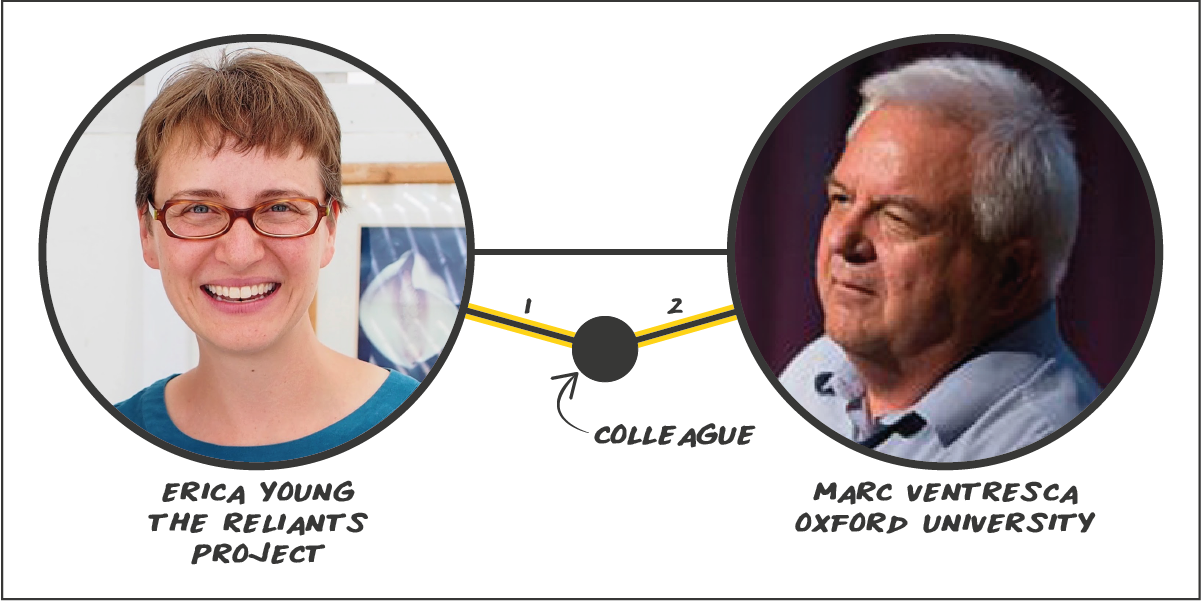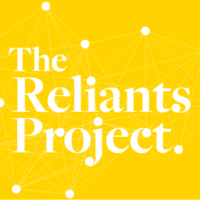
Podcast: Play in new window | Download
Marc Ventresca is an Associate Professor at the University of Oxford Said Business School. His work focuses specifically on entrepreneurs and social innovators, understanding how they build networks to support their initiatives and how those networks evolve over time and influence outcomes.
In this episode we:
- Discuss how entrepreneurs and social innovators build networks to support their goals
- Talk about the role of diversity in those networks and what it unlocks in terms of opportunity
- Uncover the underlying network science principles that help drive that diversity and the opportunities it provides
- Marc makes a recommendation for how to grow your network as an entrepreneur
- Consider whether the word network should be used as a verb at all
KEY NETWORK SCIENCE CONCEPTS
- The Strength of Weak Ties
- The Adjacent Possible
- Homophily
SHOW NOTES
- Entrepreneurs and social innovators are interesting because they are working to imagine a world that doesn’t exist yet. What does Marc have to say about this reality as a cognitive and social activity? How do these network concepts show up in our lives? [1:42]
- There’s a rich history of using complex mathematical formulas to understand connections between people, the nature of those connections, the dimensions of them, and how close in physical/social/cultural terms people are. What has this history taught us about homogeneous vs. heterogeneous networking tendencies? [2:35]
- How can we use concepts of the adjacent possible to more naturally embrace more successful heterogeneous networks? [5:21]
- How has Marc been influenced by Mark Granovetter of Stanford? Why did people believe strong ties were important and how has that thinking shifted in recent decades? [7:10]
- There is a comfort in knowing everyone on earth is connected—that we are “all in this together.” What are some deeper meanings behind this common sentiment? Why is this more prevalent during disastrous times and how does inequality intersect with this philosophy? [09:30]
- When used as a verb, the term “network” can embody harsh calculating or manipulative connotations. How can we redirect the conversation to embrace network cultivating as a more universally beneficial act? [11:11]
- How can social innovators utilise these concepts to effect change and reimagine new world systems? What are the risks and benefits of working inside vs. outside of current systems; as individuals vs. within organizations? [13:51]
- How is Leapfrogging used to build developing networks? [18:11]
- It takes a tremendous amount of effort to break up tendencies towards homophily. For the sake of creating a more effectively diverse demographic of influence, what are the arguments for investing long-term action in this effort? What can the challenge teach us about our world, our history, and our future potential? [20:30]
- We can embrace this challenge of diversifying networks with a simple call to action. What happens if we casually talk to one new person a week? How can these meetings embrace the power of serendipity and luck to move positive change in a developing network? [24:40]
- Bluebox: Erica discusses the strength of weak ties, a seminal concept in the field of network science based on the research of Mark Granovetter [27:41]
- What are roadblocks to diversification? Why are some networking challenges more prevalent to some than others based on their cultures or backgrounds? How are these challenges especially prevalent during Covid times? [34:27]
- Developing heterogeneous networks has the power to save lives and rebuild communities experiencing disaster. What are some real-world examples that show this to be important? [36:08]
- Marc shares how there are many skills one needs to be a successful entrepreneur, innovator, or change agent. When you start to think of network ties, you multiply the sum of your skills to scale meaningful positive impact. How has Marc’s impact been supported by these functional weak ties and how is he working to support the future of network research?
- Closing statements [40:43]
SELECTED LINKS FROM EPISODE
Marc Ventresca – Linkedin | Twitter | Research
- The Adjacent Possible
- Heat Wave by Eric Klinenberg
- The Strength of Weak Ties
- Marc Ventresca Scholarly Articles
- Santa Fe Institute
PEOPLE MENTIONED
